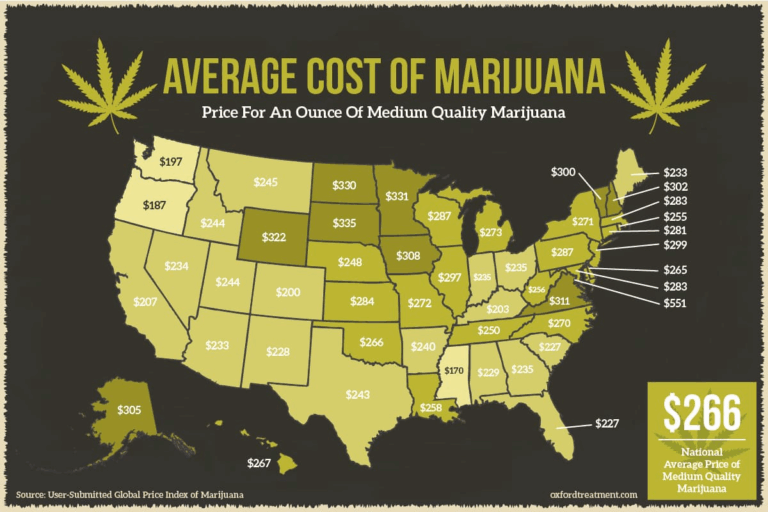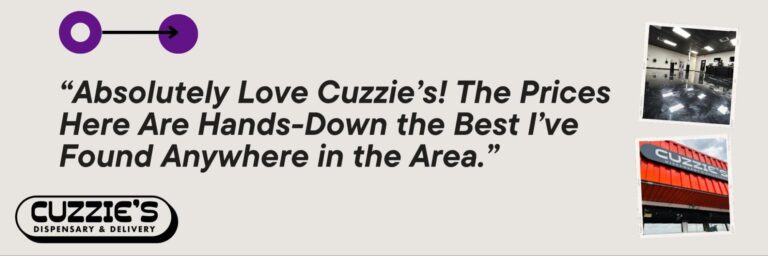Weed is expensive in New Jersey because of supply limits, layered taxes, corporate control, and a system that favors big money over local access. Even with a medical card, prices stay high. Some dispensaries are pushing back. We’re one of them.
Here in Jersey, people keep asking why weed costs so much more than it should. The short answer is the system wasn’t built for the everyday consumer.
- Corporate players control the licenses: Most of the product in NJ comes from a small group of big companies. That means less competition and higher shelf prices
- Taxes are stacked at every level: There’s a state excise tax, a local user tax, and the SEEF tax. All of it adds up at the register and hurts patients and everyday buyers the most.
- Medical cards do not guarantee better deals: In some cases, medical prices are even higher than adult-use menus. Many patients feel like they were left behind.
- Town-by-town politics stall access: Some towns block dispensaries altogether or slow-roll licenses. This keeps options limited and prices inconsistent across the state.
- Real efforts are being made to change this: Independent dispensaries like ours are challenging the system by cutting margins and carrying only products we’d personally use.
If you want the full breakdown, keep reading.
What’s Driving New Jersey’s High Weed Prices?


Everyday smokers in New Jersey are feeling the pinch. People are wondering why an eighth can cost sixty-five dollars or more when nearby states are rolling out top-shelf for half that. Here’s what is really behind the sticker shock.
Limited Supply and Big Corporate Control
The first problem starts at the top. A small group of large companies controls the majority of cannabis licenses in New Jersey. These multi-state operators decide what gets grown, what hits the shelves, and how much it costs.
Smaller, independent cultivators are often locked out of the game. Without their presence, there is no real competition to drive prices down or to offer different price points to consumers.
- Fewer growers means fewer price options: When one group sets the market, there is no incentive to lower costs.
- Shelf space is bought, not earned: Products that make it to retail are often there because of business deals, not quality.
- Corporate models focus on profit, not access: High prices and low product variety are features of this system, not flaws.
Cultivation and Licensing Bottlenecks
Even the businesses that want to do it the right way run into delays. Some towns refuse to approve licenses or make the process so slow and complicated that many local entrepreneurs give up.
There are towns waiting around for a billion-dollar player instead of opening their doors to independent operators ready to serve the community today.
- Disparity in product selection is real: Some shops have a full menu while others only offer five flower SKUs.
- Delayed licenses keep options limited: Less access means higher demand for what’s already on shelves, which raises prices.
- Local gatekeeping blocks equity: Small operators bring innovation and affordability, but they cannot break through red tape.
The Hidden Cost of the SEEF Tax
The Social Equity Excise Fee is supposed to help fund reinvestment in communities harmed by past cannabis laws. In theory, we support that. But right now, it is just another weight on the scale driving up prices.
The fee is tied to wholesale cost and can rise up to thirty dollars per ounce. It hits cultivators first. Most small growers cannot afford to absorb that cost and stay alive.
So the result is predictable. Customers see higher prices and wonder why.
- 10 to 15 percent markups come from one fee: Most people do not even know this tax exists
- The money rarely makes it to communities: Impact zones have not seen much return yet
- Growers and buyers both lose: The tax was meant to build equity but is currently breaking the system
Local Taxes and Fees Compound the Damage
It does not stop with the SEEF. Local towns are allowed to tack on user taxes of their own. Add in regular state sales tax and the total tax burden can stack fast.
That is why you might see the same product selling for forty dollars in one town and seventy just a few miles away.
- The tax pile-up hits the register: By the time all layers are added, pricing feels inflated even when the base cost is fair
- Inconsistent rules across towns create chaos: It is hard for customers to plan or shop smart when every town plays by different rules
- Budgets get wrecked by zip codes: Where you live can decide how much you pay and what you can even access
If New Jersey wants a fair, competitive cannabis market, this is where the work needs to begin.
Why Doesn’t a Medical Card Save You Much in NJ?
Most people assume that getting a medical card in New Jersey means better prices, stronger options, and some form of respect for being a patient. Unfortunately, that is not the case.
Medical Market Still Controlled by MSOs
The medical side is still run by the same large companies controlling the adult-use market. That means the menus look the same, the pricing is the same, and in some cases, patients pay even more.
There is no price cap in place to protect patients. Nothing forces these companies to offer lower rates or specialized access for those with a card. The result is a system where the people who rely on cannabis the most often get the worst deal.
- Same players, same prices: Medical products come from the same growers and sit on the same shelves as rec items.
- Higher prices for patients: Some menus actually list medical pricing above adult-use.
- No laws to stop it: Bills have been proposed, but no price caps exist today.
Few Product Differences
When you hold a medical card, it should mean something. Patients expect exclusive access to products tailored for their needs. Instead of the best brands bringing the relief they seek, they get dry flower, old pre-rolls, and limited SKUs that often do not hit the mark.
In too many dispensaries, the only thing that changes is the checkout process. The selection stays the same and so does the frustration.
- Menus are usually identical: There are no patient-only batches or potency boosts.
- Expectations do not match reality: Patients come in looking for relief but get the same flower available to everyone else.
- It feels like an afterthought: The system does not prioritize people who need cannabis for real conditions.
We carry products like RSO and topicals because we know those matter to our community. Even if they are not top sellers, they belong on the shelf. Patients deserve more than just a discount line. They deserve care that matches their card.
What Are Consumers Saying?


Photo Source -> Oxford Treatment Center
When it comes to cannabis in New Jersey, people are not quiet about their experiences. Whether it is online or inside our store, the same frustrations keep coming up. The issue goes deeper than just the price tag. It is about quality, trust, and whether the promises of legalization were ever real to begin with.
Traveling To New York Or Massachusetts
Plenty of New Jersey smokers now travel to New York or Massachusetts just to avoid overpaying. What they get there often costs less and smokes better. Meanwhile, here at home, many customers are tossing humidity packs in their jars because the bud is already dry before it leaves the dispensary.
No one wants to spend top dollar for something that feels like it sat in a warehouse too long. And it is hard to blame people for crossing state lines when they know they can get more for less.
“Did Legalization Actually Make Things Worse?”
A lot of old heads think it did. Weed used to be cheaper, fresher, and more reliable when it came from someone they trusted. Now it comes from someone they cannot even talk to.
Legalization promised better access and stronger protections. Instead, patients feel forgotten, menus feel generic, and the overall experience feels like something that was built for investors, not the community.
“Where’s The Equity?”
People are asking what happened to the equity part of this whole rollout. The state created a Social Equity Excise Fee to reinvest in impacted communities. But most people have not seen any reinvestment.
The Cannabis Regulatory Commission has not shared much about where the money is going. And until people start seeing change in their neighborhoods, the whole thing feels like another empty promise.
Is Anyone Actually Trying to Fix the Problem?
It is easy to get discouraged when prices stay high and the system feels rigged. But there are people and groups out here doing the work. From independent shops to grassroots organizers, the push for a fairer cannabis market in New Jersey is alive and real.
Independent Dispensaries Are Fighting Back
Not everyone is playing the corporate game. Some dispensaries are staying small on purpose to keep things accessible. We are one of them. Instead of chasing inflated profit margins, we focus on fair pricing and carrying products we actually believe in.
That means saying no to overpriced eighths just because they come in shiny packaging. It means listening to the people who shop with us and making sure they feel seen.
- We cut our margins on purpose: The goal is access, not excess.
- Our menu reflects what we would buy: If we would not smoke it, we will not sell it.
- People over profit: That is how we were built, and that is how we stay.
Advocacy Groups Push for Price Caps
There are lawmakers and community groups working to pass bills that would give the NJ Cannabis Regulatory Commission more control over pricing. These proposals would help stop price gouging, especially on the medical side.
Activists are not against taxes if they serve a real purpose. Many support the idea of a thirty dollar per ounce tax, but only if that money is actually going into impact zones and not just into state accounts.
- Price caps could protect patients: Especially those who rely on cannabis every day.
- The SEEF tax needs transparency: People want to know how equity is being delivered.
- The fight is ongoing: Advocacy is not just a buzzword. It is strategy and follow-through.
Consumers Are Educating Each Other
People are not waiting for official reports to figure out how to get the best deals. They are doing it themselves. Reddit threads, group chats, and word of mouth have become go-to sources for learning which dispensaries are worth it and which ones are not.
Shoppers are starting to think like insiders. They are asking for harvest dates, skipping pre-packed jars, and supporting businesses that feel real.
- Smart shoppers know where to go: They track menus, deals, and new licensees.
- Budtender reviews matter: The right person behind the counter makes all the difference.
- People are voting with their wallet: And they are not afraid to take their money somewhere else.
There is still work to do, but it is not all bad news. Change is happening. And it is being pushed by the same people who got left out the first time around.
Will Prices Ever Come Down in NJ?
This is the question everyone keeps asking. Is this just how things are now, or will we eventually see relief at the register? The answer is complicated, but it is not all hopeless.
New Jersey is still in the early stages of building its legal cannabis market. That means growing pains. Fewer licenses, limited supply, and high startup costs make things chaotic and expensive.
But this stage does not last forever. As more growers, manufacturers, and dispensaries come online, competition will grow. That could lead to more affordable options for consumers who are tired of paying top shelf prices for mid-level bud.
- More licenses mean more supply: And more supply usually means lower prices
- The market is still adjusting: Newer dispensaries and cultivators need time to find their lane.
- Early-stage chaos will not last forever: But right now, it is still rough.
So What Can You Do as a Consumer?
You should not have to settle for overpriced weed or dry flower that does not hit. The good news is there are ways to push back. The more informed you are, the more power you have to make this market work for you.
Shop Smart, Shop Local
Where you spend your money matters. Local dispensaries that care about the community are pricing with people in mind, not shareholders. That includes carrying budget-friendly options and not marking things up just because they can.
Keep an eye out for value drops, ground flower packs, and high-dose edibles that give more for less. You should not have to trade quality for affordability.
- Support dispensaries that respect your budget: Some shops price fairly on purpose.
- Look beyond fancy packaging: Good weed does not always come in flashy jars.
- Ask about deals and budget options: You will be surprised what is available when you speak up.
Ask Questions
A good budtender should make you feel confident, not confused. Ask about potency, freshness, batch dates, and what is actually worth the price tag. Do not assume the most expensive item is the best one on the shelf.
Asking “Is this worth sixty dollars?” is not rude. It is smart shopping.
- Engage with your budtender: They are there to help, not just ring you up.
- Talk effects, not just THC: You might find better results with less.
- Question high pricing: Especially if the product looks or feels off.
Get Loud
If you are frustrated with pricing, say something. Reach out to local officials. Attend CRC meetings. Post your experience. Consumers have already started to shift the conversation just by sharing what they see and feel.
This industry changes when people push it to. Staying quiet helps no one.
- Speak up about broken promises: Especially if you are a patient or longtime user.
- Support equity-driven businesses and bills: They need your voice.
- Do not underestimate your impact: You are the reason this market exists.
Cannabis should not feel like a luxury item. It should feel like something made for you. And if it does not yet, there is still time to change that.
It’s Expensive Now, But It Doesn’t Have to Stay That Way
Weed is expensive in New Jersey. No argument there. But that does not mean this is the way it has to be. These prices are the result of policy choices, politics, and systems built to protect profits over people.
As a consumer, you are not powerless. Where you shop, what you ask, and how loud you get all matter. The more we support the folks doing it right, the harder it becomes for the system to ignore us.
At Cuzzie’s, we believe quality cannabis should not break the bank. Come through, ask questions, and find your vibe without overpaying for it.

